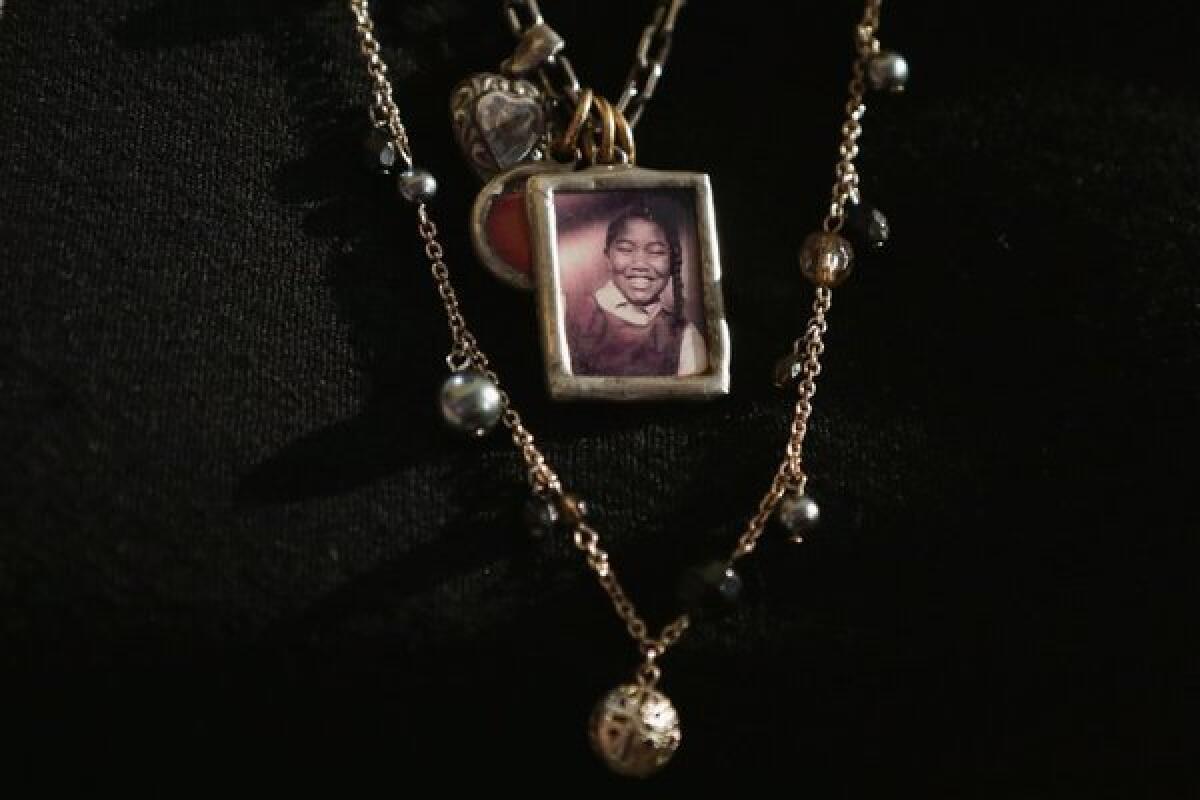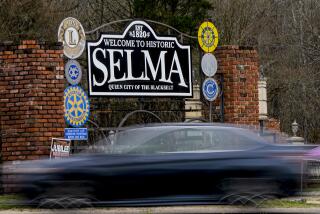Civil rights: Victims of 1963 Baptist Church bombing honored

- Share via
WASHINGTON -- The nation marked the 50th anniversary of another key moment in the civil rights movement Tuesday, posthumously awarding Congressional Gold Medals to four black girls killed in a 1963 church bombing in Birmingham, Ala.
The nation’s highest civilian honor was presented to Denise McNair, 11, and Cynthia Wesley, Addie Mae Collins and Carole Robertson, all 14, at a ceremony in the Capitol that included congressional leaders from both parties and relatives of the girls, including Sarah Collins Rudolph, Addie Mae’s sister and the lone survivor of the explosion.
The Sept. 15, 1963, attack by Ku Klux Klan members at the 16th Street Baptist Church helped generate momentum for passage of the Civil Rights Act of 1964 and the Voting Rights Act of 1965.
“I know that the journey that I now take as Alabama’s first black congresswoman would not be possible had it not been for the journey of Addie, Carole, Denise and Cynthia,” said Rep. Terri A. Sewell (D-Ala.), the House’s chief sponsor of the legislation awarding the gold medal. ‘
“Today, Addie Mae, Denise, Carole and Cynthia will finally be recognized as agents of change,” she said.
Senate Minority Leader Mitch McConnell (R-Ky.) called the bombing a “decisive turning point in the civil rights struggle,’’ telling family members in the audience “the lives of these children meant something to the history of this country. They helped change our nation.”
President Obama signed legislation in May to award the gold medals.
The presentation came a few weeks after the U.S. marked the 50th anniversary of the March on Washington, where the Rev. Martin Luther King Jr. delivered his “I Have a Dream’’ speech.
A bell from the 16th Street Baptist Church was rung at the Aug. 28 anniversary commemoration at the Lincoln Memorial, and the Smithsonian is featuring shards of stained glass from the church in an exhibit sponsored by the National Museum of African American History and Culture.
King delivered the eulogy at the girls’ funeral shortly after the march.
Although the FBI identified suspects in the bombing, it closed the case at the direction of then-Director J. Edgar Hoover, who contended that an all-white Alabama jury would never convict the men. But in 1971, Alabama’s then-Atty. Gen. William Baxley reopened the case, leading to the 1977 murder conviction of Robert E. Chambliss, who died in prison in 1985.
After the FBI reopened its case in 1993, Thomas E. Blanton Jr. was convicted of murder and sentenced to life in prison in 2001. Bobby Frank Cherry was convicted a year later and died in prison in 2004. A fourth suspect, Herman Cash, died in 1984 without being charged.
The gold medals will be put on display at the Birmingham Civil Rights Institute. The legislation authorized the U.S. Mint to strike bronze duplicates for sale.
Among the civil rights figures who have been awarded Congressional Gold Medals are King and his widow, Coretta Scott King; Dorothy Height, who led the National Council of Negro Women for four decades; Rosa Parks; and the Little Rock Nine, who integrated a Little Rock, Ark., high school.
ALSO:
Florida man tricks pregnant girlfriend into taking abortion pill
New Yorkers begin voting after volatile primary race for mayor
IPad images could figure in George Zimmerman domestic battery probe
More to Read
Sign up for Essential California
The most important California stories and recommendations in your inbox every morning.
You may occasionally receive promotional content from the Los Angeles Times.











